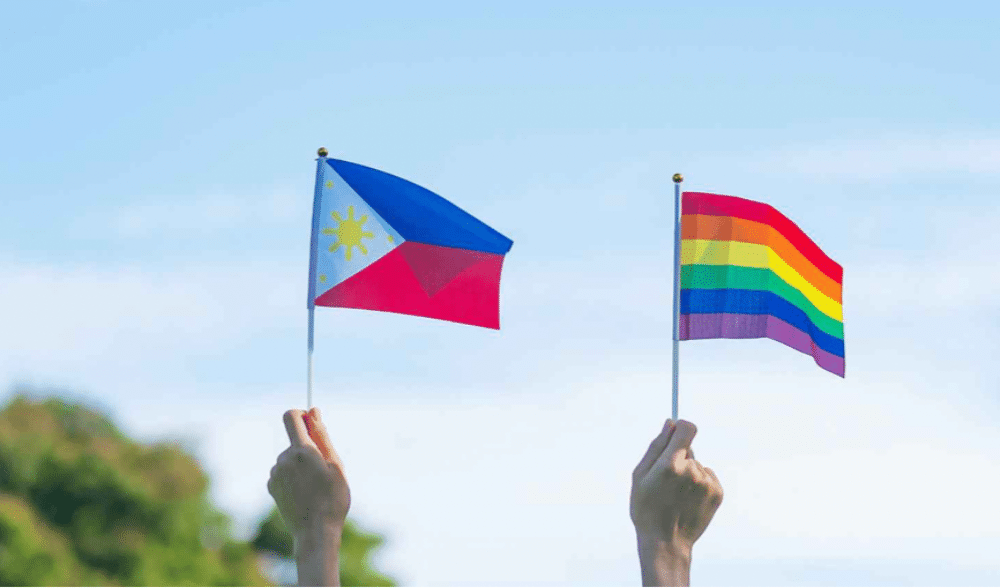SAM BECK WRITES – It was a momentous event, the culmination of a long fight to recognize the rights of those who identify with the LGBTQIA+ community, and a nationwide celebration of Pride Month: On June 24, Manila held the Metro Manila Pride March and Festival, and Quezon City held the LoveLaban: Pride PH Festival—the largest gathering of this kind in Southeast Asia. Crowds of some 110,000 showcased performances by celebrities and musicians in both celebration and protest.

Just one day before— Friday, the 23rd-—Quezon Mayor Joy Belmonte announced that the “Right to Care Card” would become a piece of formal legislation, thereby establishing the right of queer couples to make medical care decisions for their partners. Specifically, the card qualifies any listed partner for next-of-kin rights in the event of a medical emergency, whether that’s signing waivers, selecting doctors, or exercising decision-making in the approval or denial of medical procedures. In addition, partners can now be listed as beneficiaries of life insurance policies.
Mayor Belmonte announced that the program will be launched by government-run medical facilities, then later expanded through other incentives. This initiative follows the mayor’s 2014 Gender-Fair Ordinance and is a seminal step forward in support of LGBTQIA+ rights in the Philippines.
Such success has been a long time coming! Metro Manila Pride is a volunteer-run organization that has launched events since 2016, but the movement itself, made up of a larger group of organizations such as The Lesbian Collective, UP Babaylan, Pro-Gay Philippines, and the Society of Transexual Women (who coined the term “transpinay”) has been rallying since the early 90s in and around Manila.
Global comparisons  show that Taiwan is the only country in East Asia to legalize same-sex marriage (2019), but the Philippines is one of a few nations (including Thailand, Japan, Mongolia, South Korea, and Nepal) in which anti-discrimination laws have been passed. Of note, President Marcos Jr. has said that if there is popular support for same-sex marriages, it is up to the lawmakers to legislate and legalize. City-level ordinances like Mayor Belmonte’s are groundbreaking because they have the potential to cause a ripple effect in other municipalities, building a kind of grassroots evolution of the LGBTQIA+ movement, allowing citizens to realize the compounding trickle-up effect of political power after years of activism.
show that Taiwan is the only country in East Asia to legalize same-sex marriage (2019), but the Philippines is one of a few nations (including Thailand, Japan, Mongolia, South Korea, and Nepal) in which anti-discrimination laws have been passed. Of note, President Marcos Jr. has said that if there is popular support for same-sex marriages, it is up to the lawmakers to legislate and legalize. City-level ordinances like Mayor Belmonte’s are groundbreaking because they have the potential to cause a ripple effect in other municipalities, building a kind of grassroots evolution of the LGBTQIA+ movement, allowing citizens to realize the compounding trickle-up effect of political power after years of activism.
Now, with long-held societal wrongs being righted, Filipino nationals must move quickly to take advantage of newfound protections—for example, by visiting the Quezon City Gender and Development Office. But the fight is not over, as Manila is still fighting to formally legalize the SOGIE Bill, which has been in Congress since 2000.

